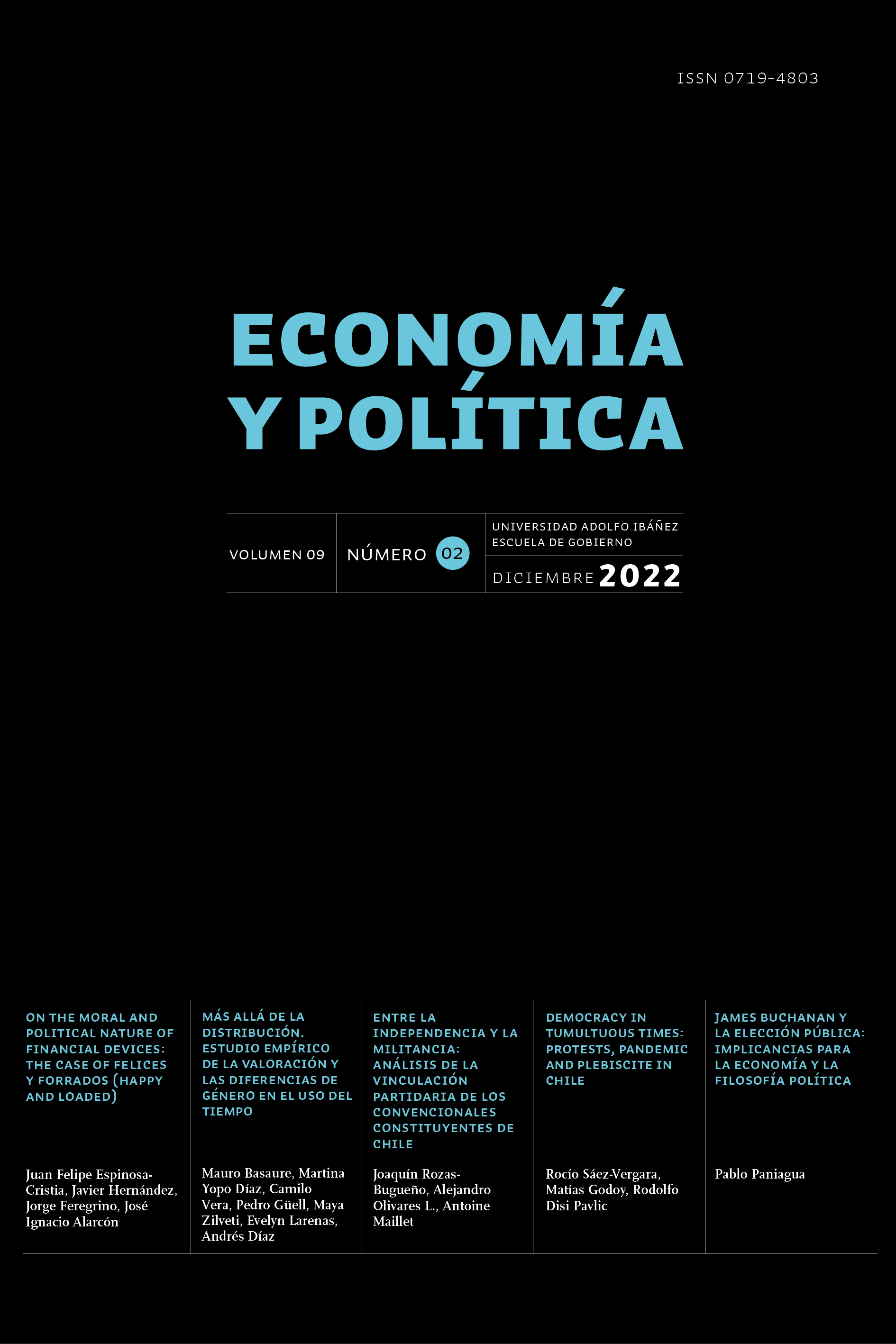Between Independents and Party Militants. An Analysis of the Partisan Linkage of Constitutional Delegates in Chile
DOI:
https://doi.org/10.15691/07194714.2022.008Keywords:
Partisan linkage, partisan militancy, partisan independence, Constitutional Convention, ChileAbstract
October 2019's social outbreak in Chile led most party system representatives to sign an agreement on a new Constitution to process the political and social crisis. That opened the way to creating a Constituent Convention, which had a novel composition: parity in terms of gender, with constituent representatives that came from electoral lists of independents and indigenous reserved seats, in addition to actors with a classical partisan profile. We tackle the following questions: What was the composition of the Convention, in terms of the conventional delegates' partisan linkages? In which way the groups that were part of the Convention differed in their attributes? The article proposes a typology of partisan linkages beyond the dichotomous distinction between legal party militants and independents, based on three categories: partisan militants, partisan independents, and non-partisan independents. We operationalize the typology by constructing our own dataset of the constitutional delegates. Our data shows a relatively homogenous distribution between the categories that account for its analytical potential. In addition, such data allows us to take some distance from views of the Convention as mainly composed by outsiders. Furthermore, we show differences between and within the categories. The partisan militants had a more traditional political profile, holding mostly experience in public offices or popular representative seats, fewer social organizations' ties, and significant intern homogeneity. The partisan independents accounted for relevant social organizations' linkages and substantial internal heterogeneity. Finally, the non-partisan independents had mostly linkages with social organizations and had more internal homogeneity than the partisan independents.


